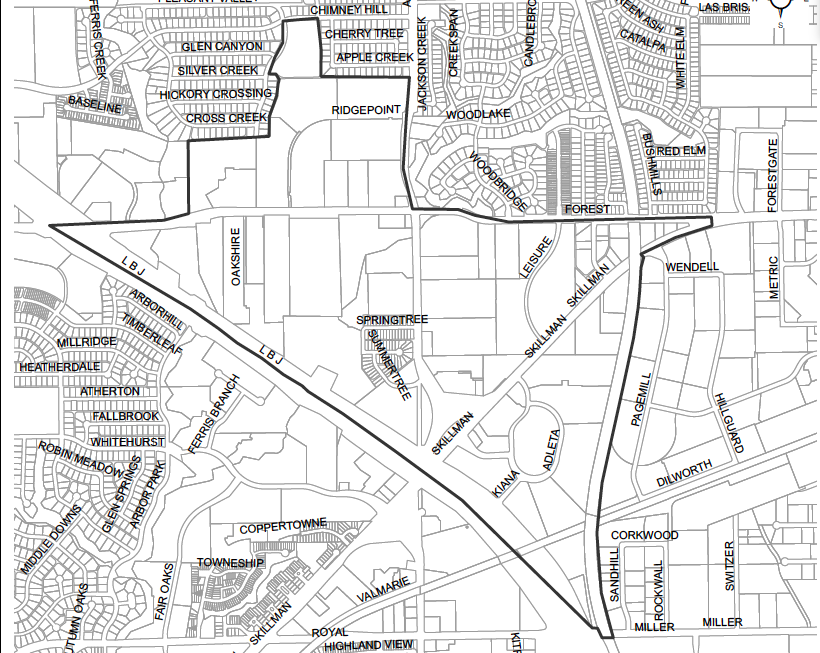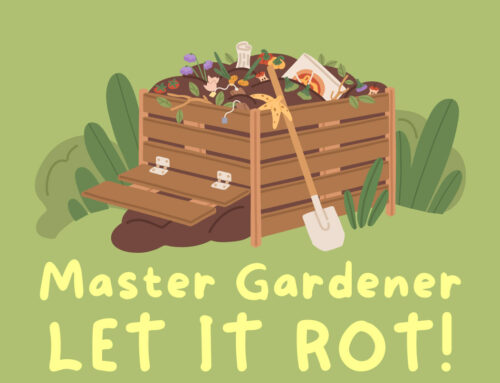PIDs have helped other nearby neighborhoods reduce crime, improve aesthetics and boost economy
Days after the City of Dallas filed a lawsuit to bring a crime-plagued Forest-Audelia property under control, neighborhood leaders are working to implement a Public Improvement District — similar to the PID that covers a sector surrounding the Lake Highlands Town Center — in our neighborhood, north of I-635.
Leaders from the existing Lake Highlands Public Improvement District Thursday hosted a meeting at Forest Lane Academy, an elementary school that would fall into the PID zone, in order to explain and answer questions about improvement districts to business owners, whose buy-in is required in order for one to form.
Like the lawsuit and various other efforts, the PID’s main function — that is, 60 percent of its budget — would go toward security, says executive director of the existing Lake Highlands PID Kathy Stewart, who also is helping to set up the northern PID.
The overall goal of a PID is, generally, to improve quality of life within the PID boundaries. That hopefully leads to more attractive property within a PID and economic growth — it has worked in southern Lake Highlands, Stewart said.
An improvement district also has benefitted nearby Vickery Meadow.
A PID allows for security beyond the typical Northeast Police patrols, explains the Lake Highlands PID Public Safety Coordinator, Vicki Taylor, a longtime Lake Highlands Resident who has raised three children in the neighborhood. “I have a big investment in this neighborhood,” she told the group of condominium and other business owners. She analyzes crime statistics daily and dispatches extended neighborhood patrol (ENP) units, off-duty officers funded by the PID, to problem properties. “Just their visibility makes a world of difference,” she says.
She also has forged a relationship with apartment managers within the PID. “I have 24 apartments in [the southern LHPID] and I can call the managers up anytime and they know me by name,” she says. She holds quarterly meetings with apartment managers and owners in an effort to keep properties up to code and crime down.
A PID’s budget basically is divided three ways — public safety, beautification or aesthetic/structural improvement and publicity/promotion of the neighborhood.
The proposed budget for the North Lake Highlands PID for 2018 is, respectively, 60/16/5 percent. The rest would go early on into establishment fees, administration, insurance and audit costs.
Much of the “improvement” portion of the PID will be focused on the Skillman-I-635 interchange and bridge, which also has funding from other sources, such as the I-635 East project.
Promotion can mean anything from hosting events and handing out T-shirts with the LH logo to signage or stickers.
So how does the PID drum up funds for this budget? That’s where the business owners come in.
Basically, if vote for the PID [they also must in the district] the City of Dallas approves its formation. Then property owners pay an assessment, not to exceed 15 cents per $100 of property value. The money is collected and given to the PID for disbursement, which is determined by a specific budget, with oversight by the City, and annual audits.
A PID usually will be approved once either 60 percent of property owners petition in favor or property owners representing at least 60 percent of the value of the collective property proposed area petition in favor. The North Lake Highlands PID will aim for the latter. Stewart says one owner of three huge apartment complex has already signed. So the North Lake Highlands PID is well on its way. “We couldn’t have done it without him,” Stewart says.
The deadline for gathering the required number of business signatures is March 24. Then the proposal will need to be approved by the City of Dallas’ Office of Economic Development.
Below, you can read in-depth the petition.
North Lake Highlands PID Petition With Exhbits a and B by Christina Hughes Babb on Scribd






